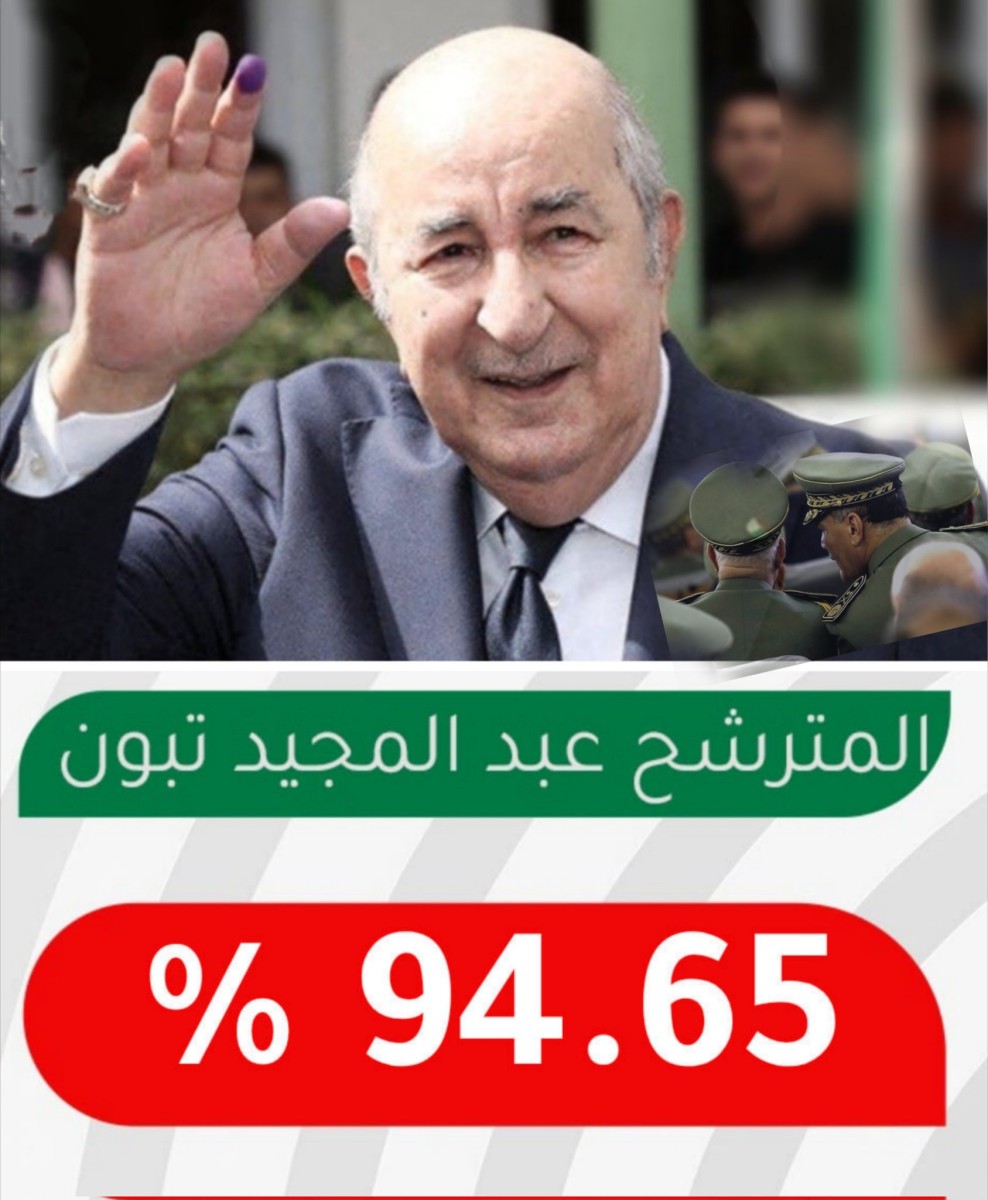Algeria elections.. announcing Tebboune’s victory for a second presidential term


The Independent National Election Authority in Algeria announced, on Sunday, that President Abdelmadjid Tebboune had won a second presidential term with a percentage of 94.65%, which means that he won in the first round without the need for a second round.
Candidate Hassani Sherif Abdel-Aali, from the “Movement of Society for Peace” party, came in second place with 3.17%, while candidate Youssef Oshish, from the “Socialist Forces Front,” came in third place with 2.16%.
Tebboune, who is supported by most of the major parties in Algeria, received more than 5 million and 300 thousand votes, compared to more than 178 thousand votes for Sherif Abdel Ali, and more than 122 thousand votes for Aouchich.
The Constitutional Court shall announce the final results within a maximum period of 10 days, after studying the candidates’ appeals and deciding on the provisional results of the presidential elections.
Tebboune was elected for the first time in 2019 with a vote of 58%, during the “Hirak” protests that forced former President Abdelaziz Bouteflika to leave power after 20 years.
The head of the National Elections Authority, Mohamed Sharafi, said that the authority “was keen to ensure that the competition was fair by providing all the necessary conditions for that,” considering that the results of these elections were “fair and transparent.” He also referred to what he described as “large participation” in these presidential elections.
Sharafi had previously announced that the final percentage of participation in these elections reached 48%, noting that Hassani Sharif’s campaign expressed its criticism of what it described as “unacceptable administrative practices.”
The Hassani Sharif campaign said that it had recorded “unacceptable administrative practices from the Independent National Elections Authority,” including “pressure on some supervisors (officials) of voting offices to inflate the results, failure to deliver counting minutes to representatives of the candidates, and also collective voting by agencies.”< /p>
The campaign did not say whether it believed these violations affected the outcome of the elections.
Before the official announcement of the results, the “Binaa Movement”, one of the most prominent parties supporting the Algerian president, was quick to congratulate Tebboune on his victory for a second presidential term, and said that this result “reflects that he is the man of this stage whose achievements the people were convinced of in establishing the major rules and pillars for Algeria.” The new "
Election promises
Tebboune promised to increase unemployment benefits, pensions, and social housing programs, after he had already raised all of these benefits during his first term as president.
He also pledged to implement a new administrative division as a priority, granting broader powers to elected local councils, in addition to continuing consultations with political parties and national figures, and giving opportunities for young people to participate in the management of state affairs.
In foreign policy, the Algerian president pledged not to “align with the poles,” diversify diplomatic relations, and support cooperation mechanisms with neighboring countries.
Tebboune promised to continue “economic reforms,” by stimulating and protecting investment, creating job opportunities, and enhancing local production as an alternative to imports, in addition to raising the gross domestic product to about $400 billion, compared to $260 billion at the end of last year.
He also wants to raise non-oil exports to reach $15 billion by 2026, from about $7 billion last year